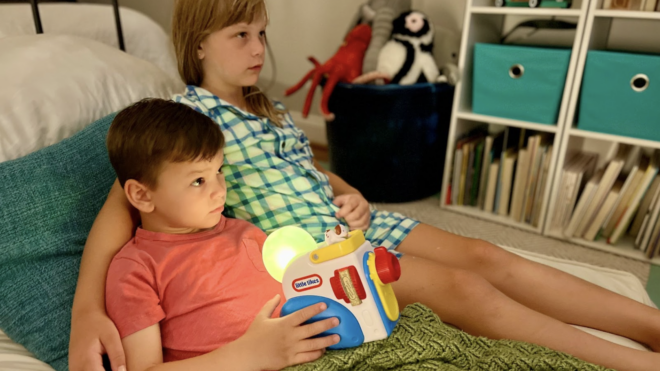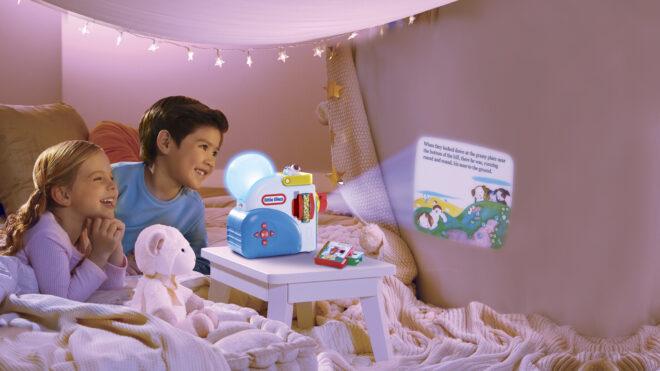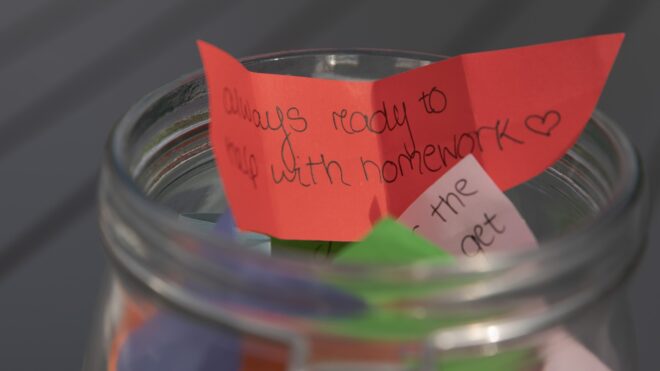
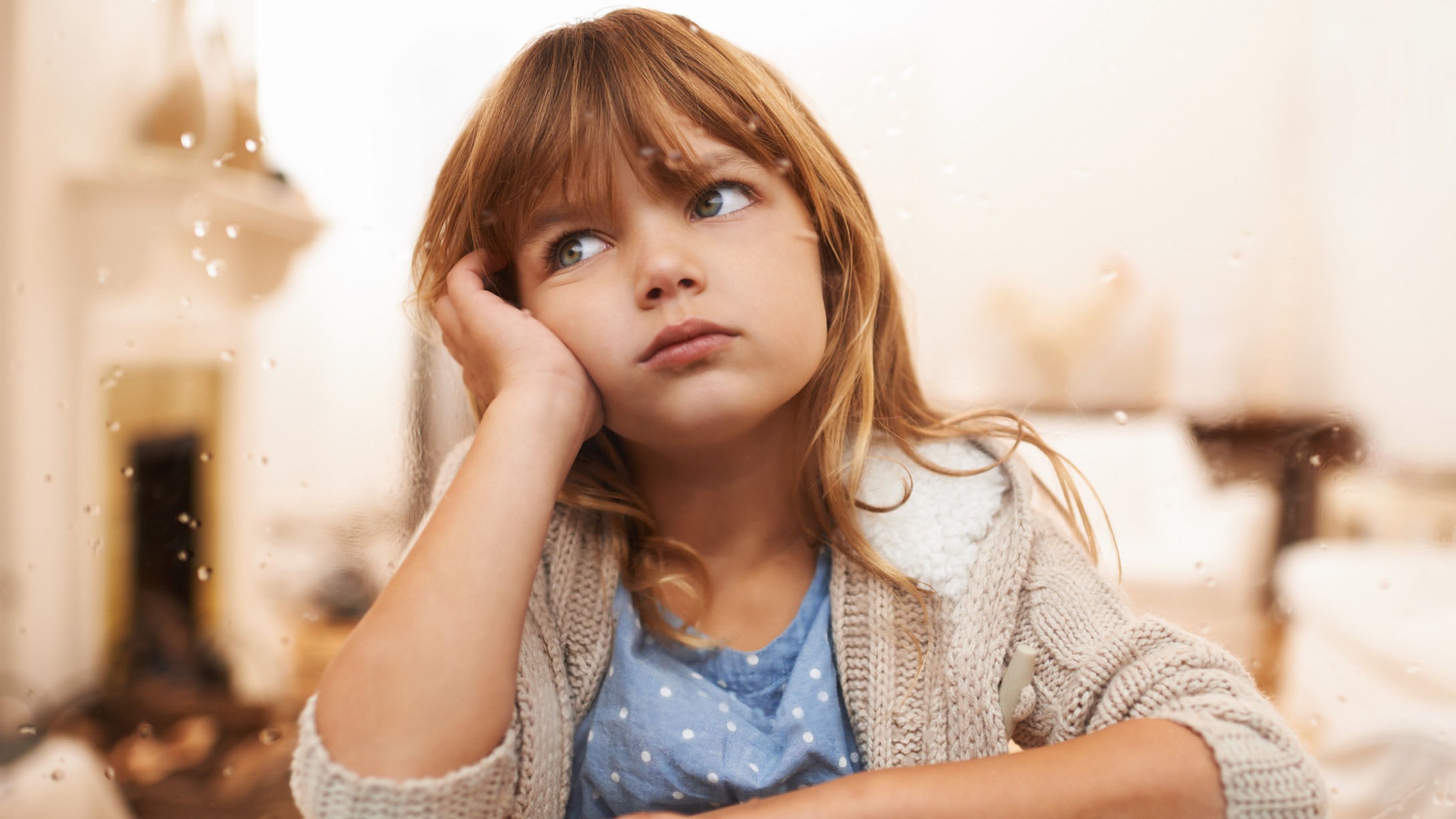
The most daunting part about the end of a school year is worrying how I’ll keep my kids busy during their summer vacation. Many people believe that they must entertain their kids at all times, but that’s not the case. It’s actually OK for your child to be bored sometimes and they could even stand to benefit from some unstructured time.
What happens when you’re bored? You start feeling whatever emotions are present in your mind and body. There’s nothing to distract you, which can make kids frustrated.
More from CafeMom: 15 Ways To Make the Most of Summer Vacation
Kids have to learn how to regulate their emotions, which isn’t always easy.
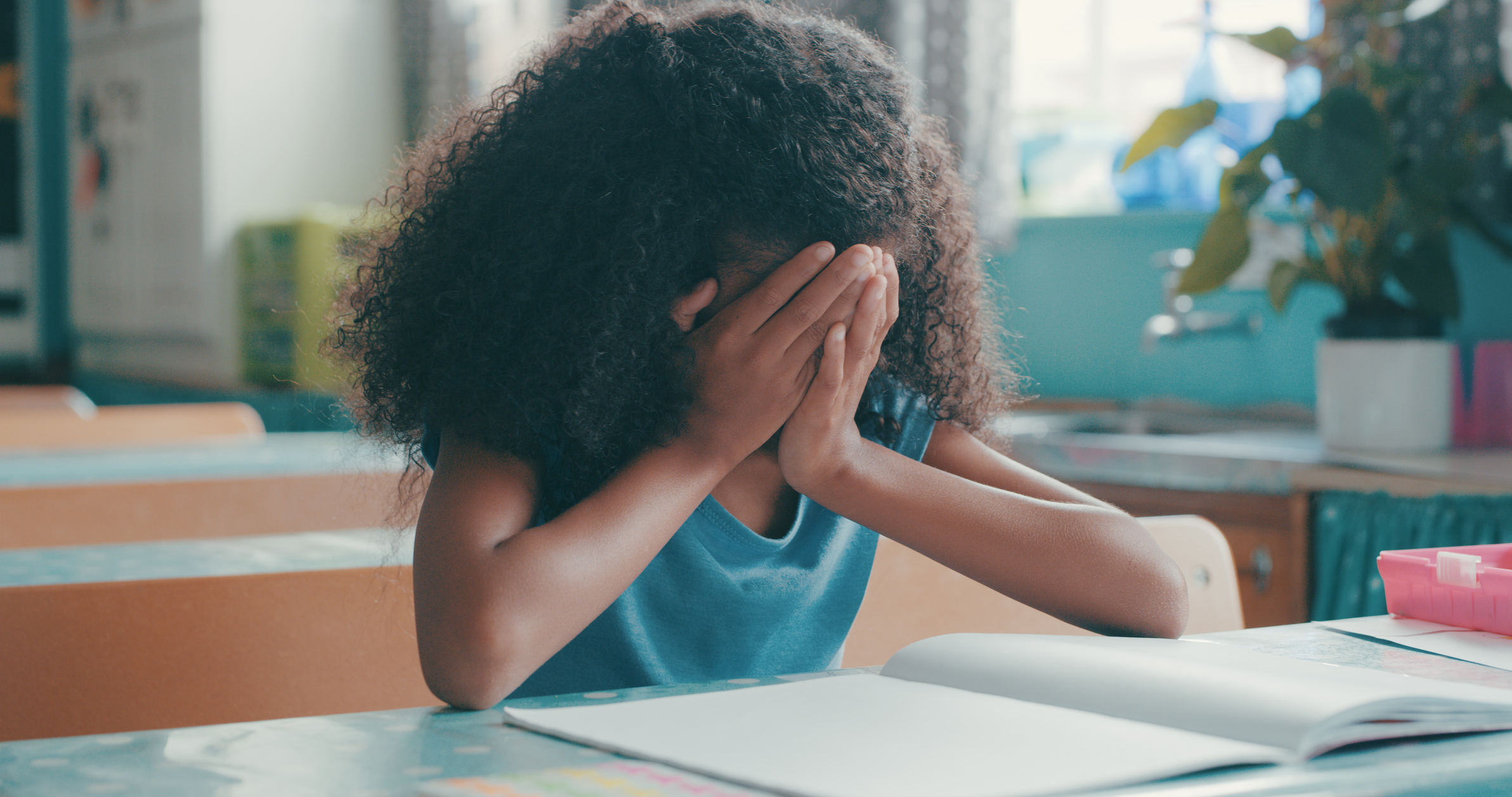
Various family factors influence a child’s emotional regulation skills, like encouraging them to stay occupied and store feelings away for later. If you let your kids get bored, they’ll unknowingly practice recognizing their current emotions.
Creativity follows that recognition because it’s a form of emotional expression for people of any age. Your little one might take their anger out on action figures by making them beat each other up. Maybe they feel sad, so they talk to their stuffed animals. An older child could express themselves in a coloring book or even write a short story to vent their positive or negative emotions.
No matter how your kids choose to spend their time alone, they’ll build helpful skills and enjoy benefits that support their overall development. Independent activities foster things like:
- More self-control and confidence.
- Better executive functioning skills.
- Problem-solving and creativity.
- Increased mindfulness.
It all starts with allowing your children to have independent downtime. As I saw my kids gain self-confidence in their own creative expression and hobbies, I noticed improvements in their self-esteem, too. They became confident in themselves as individuals compared to forming that confidence around my support or guidance.
Your child’s new confidence may even help them try new things. When you encourage them to get physically active so they develop their motor skills, your child won’t second guess their ability to do things like climb a playset, join a sports team, or learn a skill like jumping rope. Whether they like those new activities or not, they’ll learn about themselves and the thrill of trying new things.
Self-agency is another critical skill kids develop after getting bored. Your child is used to asking you for help whenever they encounter something frustrating. They might even be used to getting your help without asking. If they learn to successfully entertain themselves, they’ll build the self-agency they need to make their own decisions later in life. It may even help them start their next school year more confidently because they learned to trust their instincts.
How should you respond when a child says they're bored?
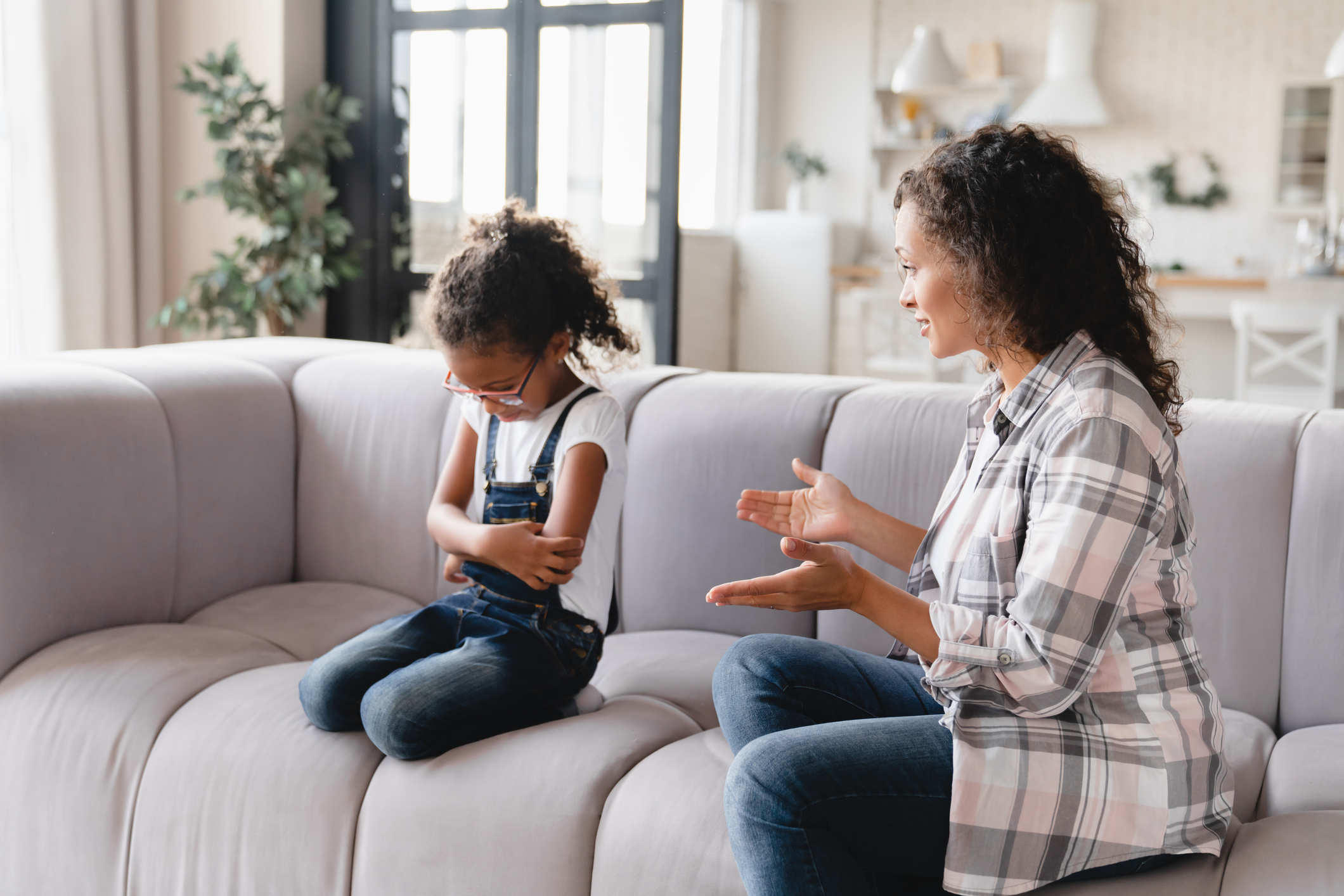
When my child says the dreaded phrase, “I’m bored,” my parental instinct is to soothe them with a shared activity. Instead, I keep these helpful phrases in mind to encourage them to enjoy some independent play time:
- “That’s OK! Think of something you want to explore and tell me what you learn about yourself.”
- “Boredom is an excellent opportunity to get creative. Grab your craft supplies and show me what you end up with.”
- “It’s a good thing you’re so smart. Go outside and you’ll find a way to have fun in no time.”
- “When you were in school the other day, what did you wish you could do with your time instead? Now’s a great chance to do that thing.”
- “Go move your body with some dancing or exercising! You’ll get extra energy to solve your boredom.”
Some parents hear their kids complain about boredom and tell them to fix it. Although that encourages their independence, it doesn’t help when that child is only used to following directions. These phrases teach them how to generate ideas and spend time alone without needing their parents by their side throughout the activity.
More from CafeMom: 16 Boredom Busters for Exhausted Moms
Figuring out how to break the bad habits.
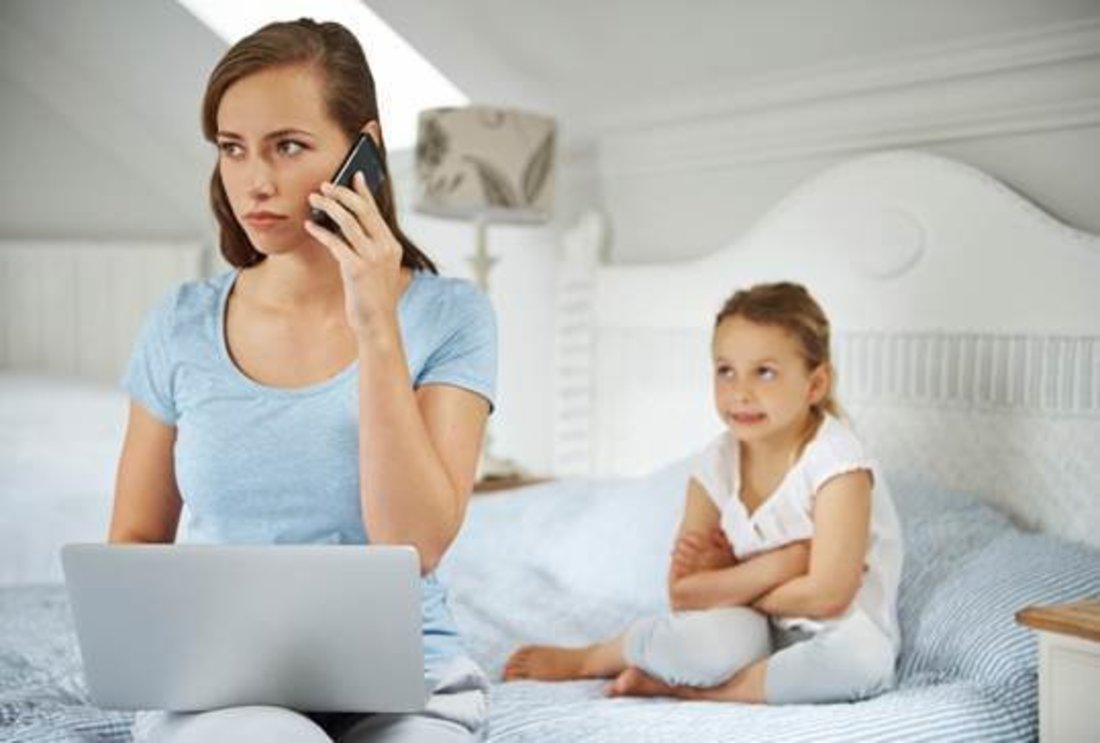
When you give your little one some free play time, you might enjoy filling those moments with things you can only do by yourself. While your child hangs out in the next room or the backyard, you could read a book or complete those household chores lingering on your to-do list.
This helps families in multiple ways. First, you’ll model what self-sufficiency looks like. My kids watch me stay busy around the house every day. Sometimes, I walk them through my thought process, like identifying if I want to relax or accomplish a task. They model that behavior when they entertain themselves by choosing between their own chores and toys.
You’ll also practice releasing any guilt you might feel about not personally keeping your kids entertained all the time. As you see them successfully find things to do, everyone gains space to function independently and feel comfortable with this developing habit.
Try giving yourself and your child an easy start if this all feels overwhelming. Let them have five minutes to figure their boredom out. Next time, give them 10 minutes. You’ll both grow more comfortable with the new dynamic without feeling pushed away from each other.
Researchers have your back if you feel guilty about giving your kid unstructured time every day. They found that when children get free play time in their toddler and preschool years, they have better self-regulation skills throughout their lives. It’s a crucial way for them to learn how they feel, think and react as they grow into their identity.
Give kids the room to grow through boredom and watch what happens.

Feeling bored while you’re on summer vacation is no fun. Preventing your child from feeling that way this summer is a natural parental instinct, but that isn’t always the best option. Kids develop their creativity, self-confidence and more when they confront their boredom.
Remember, it’s OK for your child to be bored sometimes — you just have to get used to stepping back and watching them fly.
